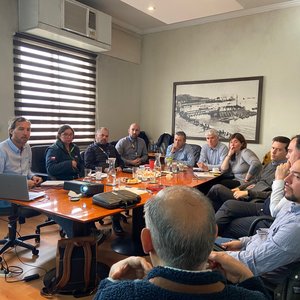While presenting at the 2016 Biomin Aqua Days held in late August, Dr. Alessio Bonaldo, Associate Professor in the Department of Veterinary Medical Sciences at the University of Bologna, argued that farmed fish are weaker than in the past due to two factors.
First, less fish meal and fish oil in diets, and second, the intensification of aquaculture have led to weakened immune systems. Part of the solution involves meeting the nutritional requirements of farmed species.
“Functional feeds can be good tools to increase the health and performance of your fish,” he explained. He also highlighted the benefits of nutritional solutions. “Used carefully and correctly, in the end it’s better to use functional feeds—even if the cost is higher,” he said.
“Shrimp feed formulation is moving from an ingredient- to a nutrient-based approach,” remarked Dr Alberto Nunes, Associate Professor at Labomar, the Institute of Marine Sciences of the Federal University of Ceará in Brazil. He went on to note the advances in supplementation, formulation and understanding of nutritional requirements made in recent years.
“It is possible to completely replace fishmeal in shrimp feeds, provided that you have correct supplementation,” he stated. Producers have adapted to these developments.
“In many countries, farmers no longer care about the fish meal content of shrimp feeds,” he stated. “Rather, farmers want to see performance in the pond.”
“Supplementation with phytogenic feed additives has been shown time and again to offer consistent performance improvement in fish and shrimp,” highlighted Carina Schieder, Product Manager Phytogenics at Biomin.
Good quality feeds, though beneficial, are not without some drawbacks. “Only 30-35% of nutrients in feed are retained in animals. As a result, around 70% of those nutrients remain in the pond. In combination with excreta and organic matter, undesirable pond conditions can quickly develop,” stated Anwar Hasan, Technical Manager Aquaculture at Biomin. “Poor water quality increases stress and susceptibility of shrimp to pathogens,” he added.
“Bioremediation strategies can stabilize pond sediment and improve farm profitability,” observed Dr Jutta Kesselring, Development Scientist at Biomin.
Learn more about Biomin










